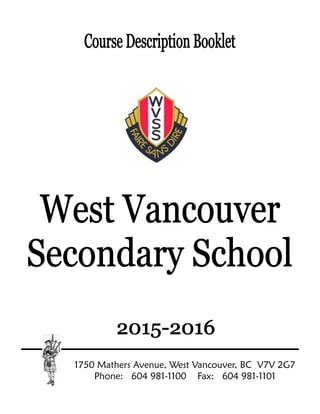This document provides information about course offerings and graduation requirements at West Vancouver Secondary School. It includes sections on academic information, graduation planning, course descriptions, and international programs. Students must earn a minimum of 80 credits to graduate, including required courses (48 credits), graduation transitions (4 credits), and electives (28 credits). Sixteen credits must be at the grade 12 level. Students must also complete five graduation exams. The document lists course offerings across subject areas for grades 8 through 12.


































































